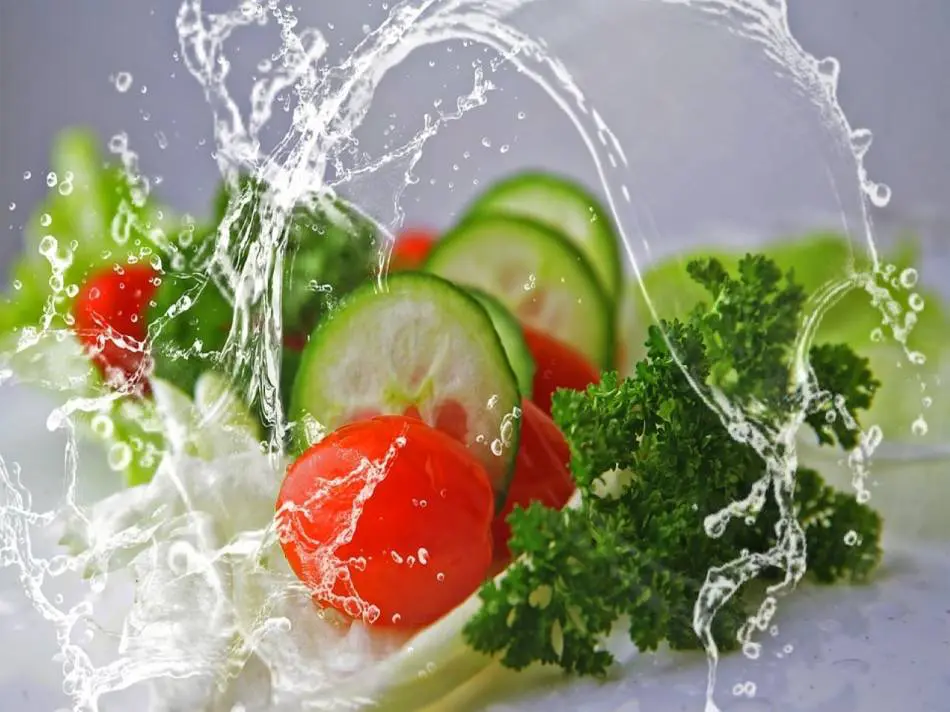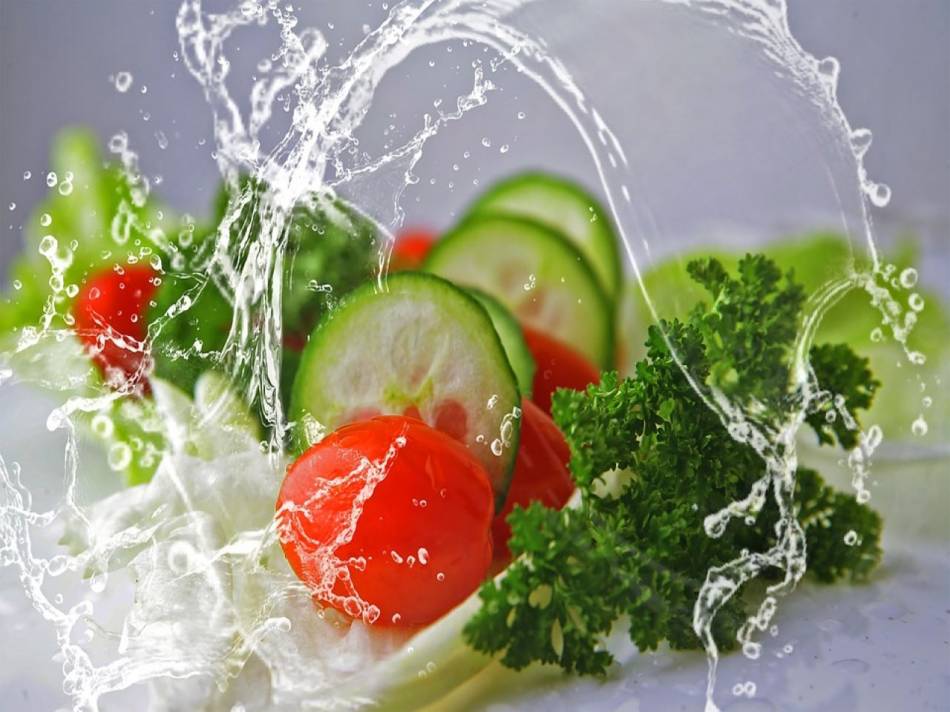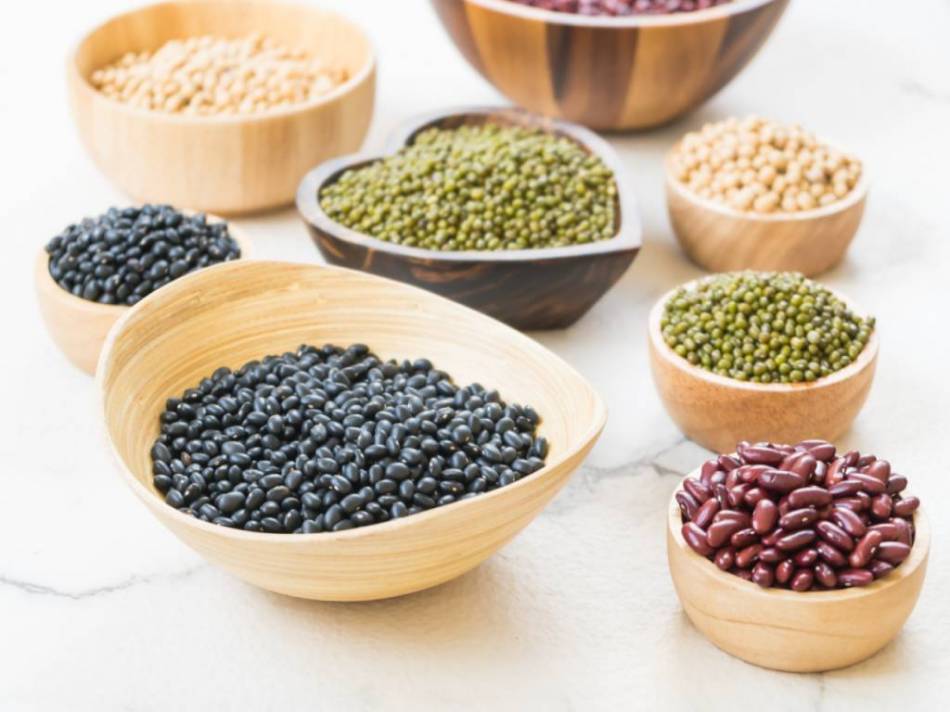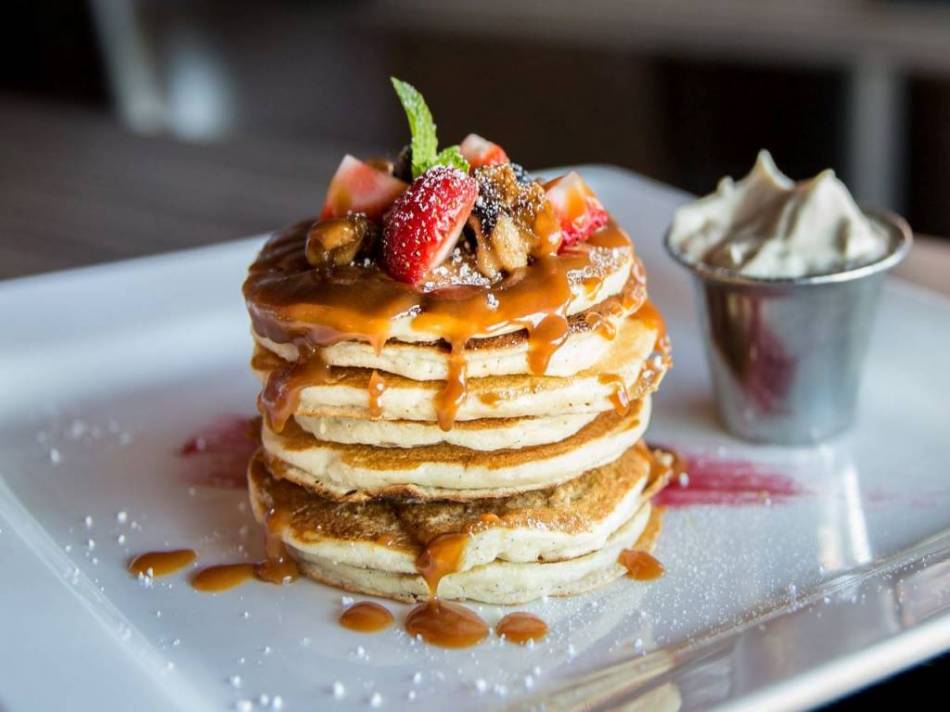
8 vegetarian meals that help build muscle

A vegetarian diet can be as tasty and varied as a regular diet with food from animal sources, and it can be a great ally when it comes to building muscle. In this article we present to you vegetarian options high in protein, and recipes you can include in your muscle-building diet.
Vegetarian diet basics
Contrary to popular belief, vegetarian diets can provide full nutrition and everything the body needs to get from any type of diet. Although it is true that vegetarians need to pay extra attention to make sure their meals are complete, it isn’t hard for them to find complete protein sources than can keep their body on track and help them achieve their fitness goals.
What amino acids vegetarians need and how do they get them?
As we explain in our amino acids guide, amino acids are the basic building blocks of the protein macronutrient, which performs many functions in the body. The body cannot produce some amino acids, so it is essential to obtain them through nutrition. They are needed for digestion, organ function, muscle building, regeneration, wound healing, hormone and enzyme production, stimulation and many other processes.
|
The 8 essential amino acids are: Isoleucine, leucine, lysine, methionine, phenylalanine, threonine, tryptophan and valine (histidine is also regarded as essential for infants). |
Foods from plant origin such as nuts, peas and beans contain excellent amount of protein and amino acids, making the as much of a good food as meat or fish, if consumed in the respective amounts. One extra benefit that vegetarians have against vegans is that they are allowed to consume eggs, considered the perfect protein food in meat-free diets because of its ideal balance of amino acids.
How to get complete protein sources with one meal?
There are two essential amino acids that people following vegetarian diets should keep an eye on: Lysine and methionine. These two would be easily found in foods from animal sources; but foods like wheat, oats, rice, legumes, beans, peas and lentils, have an imbalance of these two amino acids despite being great sources of protein overall. The recommendation is to combine different plant sourced foods in order to complete the missing amino acids, for example:
-
Nuts or seeds with whole grains (peanut butter on whole wheat toast)
-
Whole grains with beans (beans and rice; hummus and pita bread; chili made from beans and crackers; refried beans and tortillas)
-
Beans with nuts or seeds (salad of chickpeas and sunflower seeds)
What do vegetarian bodybuilders eat?
The principles for building muscle are a calorie surplus to be able to gain weight and build muscle, high protein content to keep the muscle well nourished, and the respective intake of cabohydrates and fats to provide energy to the body and to support your body functions and the recovery after hardcore intense workouts. The last two are easy to manage in vegetarian meals, so as long as you keep track of your complete proteins, a vegetarian diet should not stand between you and your muscle mass.
Best vegetarian protein sources
As mentioned before, protein is highly needed by the body in order to grow, develop and repair the tissue that is broken through exercise. Although the general public considers animal sources the most reliable, a vegetarian diet can also provide as much protein, if it includes the following foods, including plant based proteins:
-
Eggs: The egg is considered the best source of protein, as it contains the highest biological value, in addition to its superior content in vitamins, minerals and micronutrients compared to other sources. 1 Egg size L contains 6 grams of protein, 5 grams of fat of the highest quality and practically no carbohydrates.
-
Dairy products: Dairy products or milk products are a type of food produced from or containing the milk of mammals. They are rich in proteins of high biological value. Their particular importance is the high content and favorable ratio of calcium and phosphorus. Low-fat yoghurt for example, contains 5,7 g of protein per 100 grams
-
Soy products: Soy is very popular in the vegetarian world. It is an excellent source of nutrients even in small amounts. Its consumption helps in the fight against various diseases. In its original form 100 grams of soybeans contains 37 grams of protein. It is one of the fundamental foods of a vegetarian diet, as it offers a versatile possibility to replace products containing milk or meat dishes.

-
Beans and lentils: Beans are real treasures in our pantries. They are high in protein, help lower sugar, support digestion, lower cholesterol, what more could you want? 100 grams of dry white beans contains 23.4 grams of protein, and 100 grams of dry lentils contains 24.6 grams of protein.
-
Nuts: Nuts contain not only healthy fats, but also proteins and important fiber. They reduce the risk of cardiovascular disease, prevent atherosclerosis and are an excellent nutrition for the brain. Peanuts contain 26.7 grams of protein per 100 g, while almonds have 27.6 grams per 100 grams.
-
1 tbsp olive oil
-
2 carrots
-
1 onion
-
5 cups vegetable broth
-
1 cup natural yogurt
-
1 cup red lentils, dried
-
1 tbsp lemon juice
-
1 clove garlic
8 vegetarian meals for lean muscles
Spiced Carrot and Red Lentil Soup
Warm up some olive oil in a pot and add the carrots, the onion, and the garlic, letting them fry for a couple of minutes. Add the lentils in the pot and stir to cover them with oil, which will help open their pores and get more taste out of them. Pour the vegetable stock and the yoghurt, and let the mix simmer for 15-20 minutes on low heat. Season it with salt and pepper, add lemon juice to taste and then put the mix in a blender for a more creamy texture.

Sweet ricotta pancakes
-
2 eggs
-
125 g ricotta
-
3 tbsp ground almonds
-
1 tsp maple syrup
-
1 pinch salt
-
1 tsp coconut oil
-
1 tsp peanut butter
-
1 tsp raspberry jam
-
2 tbsp flax seeds
In a bowl, beat the eggs and mix them with the ricotta, the ground almonds, the maple syrups and the flax seeds. Heat up the coconut oil in a pan and pour the mix to make pancakes of around 10cms diameter. Flip the pancake every 1 or 2 minutes until each side is browning on low-medium heat. Serve and add any topping extra to taste.
Creamy pasta with broccoli
-
7 oz pasta (e.g. tagliatelle or linguine)
-
2 tbsp olive oil
-
2 cups broccoli (frozen is fine too)
-
1 onion
-
2 cloves garlic
-
½ cup vegetable broth
-
4 oz cream cheese
-
1 tsp honey
-
1 tsp lemon juice
-
Salt and pepper to taste
-
1 tsp chili flakes
Cook the pasta as explain on its packaging. Take the washed broccoli (fresh / thaw), diced onion and garlic cloves, and heat them up in olive oil to low-medium heat for a couple of minutes. Add the cream cheese in the pan and slowly add the vegetable broth but be careful no to let the mix get too watery. Drain the pasta and add it to the broccoli mix, then cook it all together for extra 5 minutes on medium heat. You can add extra ingredients for taste such as salt, pepper, chili and even a bit of lemon juice and honey to taste.
Cashew milkshake
-
250ml soy milk (or any milk of your preference)
-
1 medium, ripe banana
-
3 tsp cacao powder
-
3 tbsp cashews
-
1 pinch salt
Blend the milk, the banana, the cocoa and the cashews. Add the salt for taste and blend it all together for a couple of minutes until you get a homogeneous drink and the cashews are smooth.
Egg muffins with tofu
-
6 eggs
-
1 leek
-
2 small onion
-
160 g smoked tofu
-
½ cup cheddar cheese, grated
-
½ tsp salt
-
2 tsp olive oil
Preheat the oven to 200°C/390°F. Chop the tofu and the leek, and dice the onion, then whisk them all together in a bowl with the grated cheese, eggs and salt. Grease the muffin tray with olive oil (coconut oil is also okay), add the mix and bake the muffins for 20 minutes.
Try also these 4 vegan breakfast recipes, not only for vegans!
Lentil salad
-
100g cashews
-
1 onion
-
3 tbsp olive oil
-
1 chilli / jalapeño
-
5-6 sun-dried tomatoes in oil
-
3 slices bread (whole wheat)
-
400 g brown lentils, cooked
-
100 g arugula
-
1-2 tbsp balsamic vinegar
-
Salt and pepper to taste
Put the cashews on low heat on a pan and roast them for 2 or 3 minutes, then put the in the salad bowl. Fry the diced onion in a bit of the olive oil on low heat, then add the chili or jalapeño and the dried tomatoes, and after a couple of minutes move this mix to the salad bowl. Cut the bread into small croutons size and fry them on the pan until they are dry and crunchy. Then mix all together with the lentils and the salt, the pepper and the vinegar.
Mocha oatmeal
-
1 banana
-
¾ cup porridge oats
-
1 tsp instant coffee
-
¼ tsp salt
-
1 tsp honey
-
½ tsp cacao powder
-
1 cup water
-
¼ cup walnuts
-
1 cup milk (any type you prefer)
Squash the banana until it forms a paste, and then add the oats, the coffee powder, the cacao, the salt and the walnuts. Put the mix in a pan on medium heat and add the water, making sure not to make it too liquid. Stir and let it simmer until your obtain and nice thick texture. Serve and top with milk and honey.
Quinoa enchilada
-
2 cups cooked quinoa (cooled)
-
2 cups enchilada sauce
-
1 cup corn
-
1 can canned black beans (drained and rinsed)
-
2 tbsp chopped cilantro
-
1/2 tsp cumin powder
-
1 cup grated cheddar cheese
-
1 cup grated Monterey Jack cheese
-
1 small can diced roasted peppers
Put the quinoa, the sauce, the corn, the beans, the cilantro, the cumin, half the cheddar, half the Monterey cheese and the pepper together and mix well. Put the mix in a glass-baking dish and sprinkle the rest of the cheese on top. Bake at 175°C / 350°F for 25-30 minutes, then serve with the garnish of preference.
Try also these 5 high-protein vegan recipes for athletes.